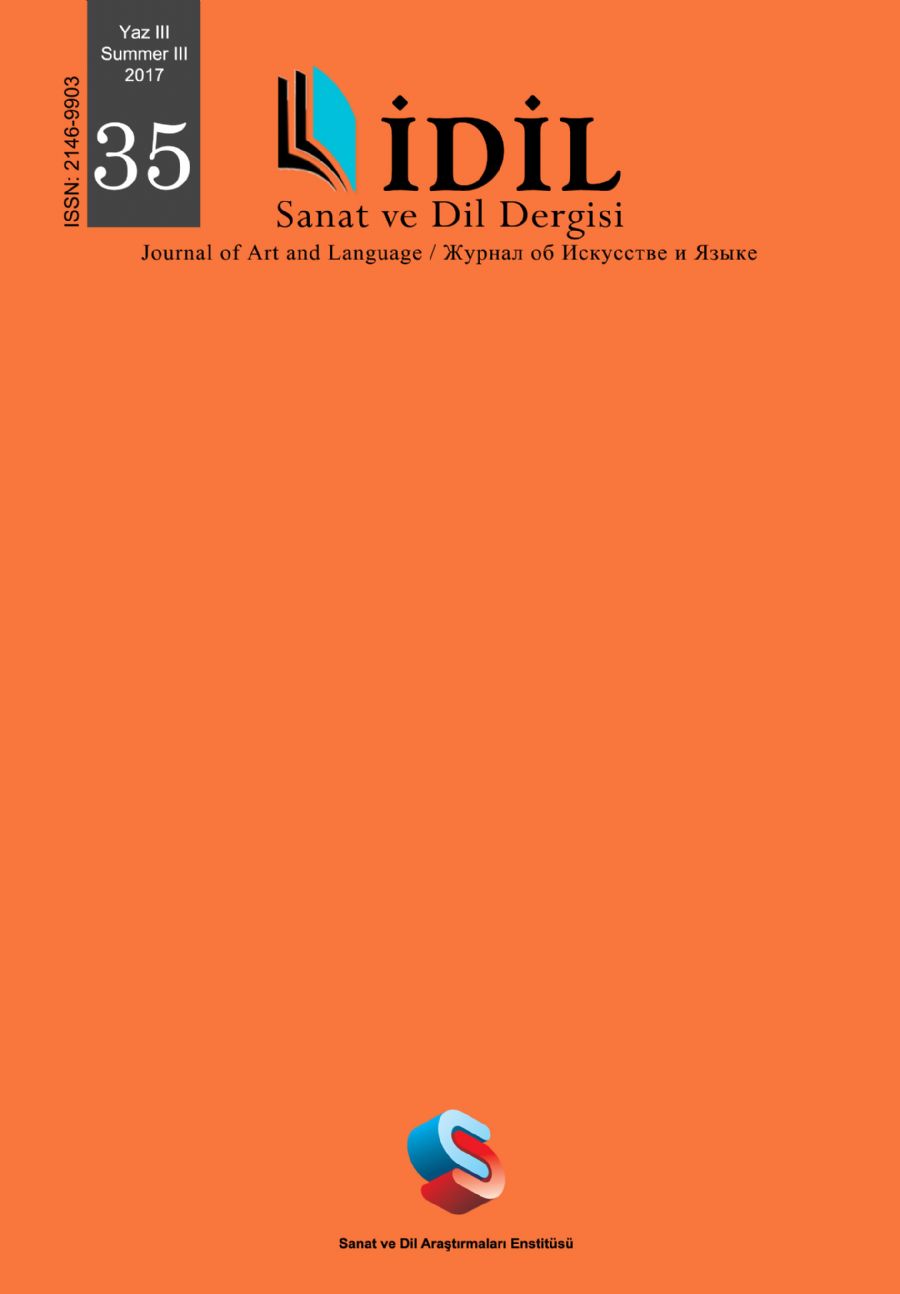TÜRKİYE TÜRKÇESİNDE SÖYLEM VE BİLGİ KİPLİĞİ İLİŞKİSİ
RELATIONSHIP BETWEEN DISCOURSE AND EPISTEMIC MODALITY IN TURKISH
Author(s): Seçil HirikSubject(s): Semantics, Pragmatics, Turkic languages
Published by: Sanat ve Dil Araştırmaları Enstitüsü
Keywords: Modality; Modals; Epistemic Modality; Discourse-Based Modals; Discourse Analysis;
Summary/Abstract: Modality shows the emotions and thoughts of the speaker, the attitude towards an event or situation. These modalities can be seen via modals in sentences. Modals can vary from phonemes to sentences. Non-language elements or emphasis, intonation and body language also can show the modality. Thereby modals have a wide range. There are also discourse-based markers among the markers that indicate the level of knowledge and confidence of the speaker. These markers indicate the level of the speaker's prediction, inference, curiosity, concern, wonder, certainty, evidentiality in relation to the event and situation. Discourse-based modals take the eloquence in context. Imaginations in dialogue, silence, missing sentences, emphasis, intonation and body language indicate modality in discourse. Modals are related with meaning and context, so discourse is also important for this situation. It can be given as far probability, certainty, ratiocinative evidentiality, perceptual evidentiality, cognitive evidentiality, prediction, inference, hesitation with discourse in epistemic modality.
Journal: İdil Sanat ve Dil Dergisi
- Issue Year: 6/2017
- Issue No: 35
- Page Range: 1955-1966
- Page Count: 12
- Language: Turkish

